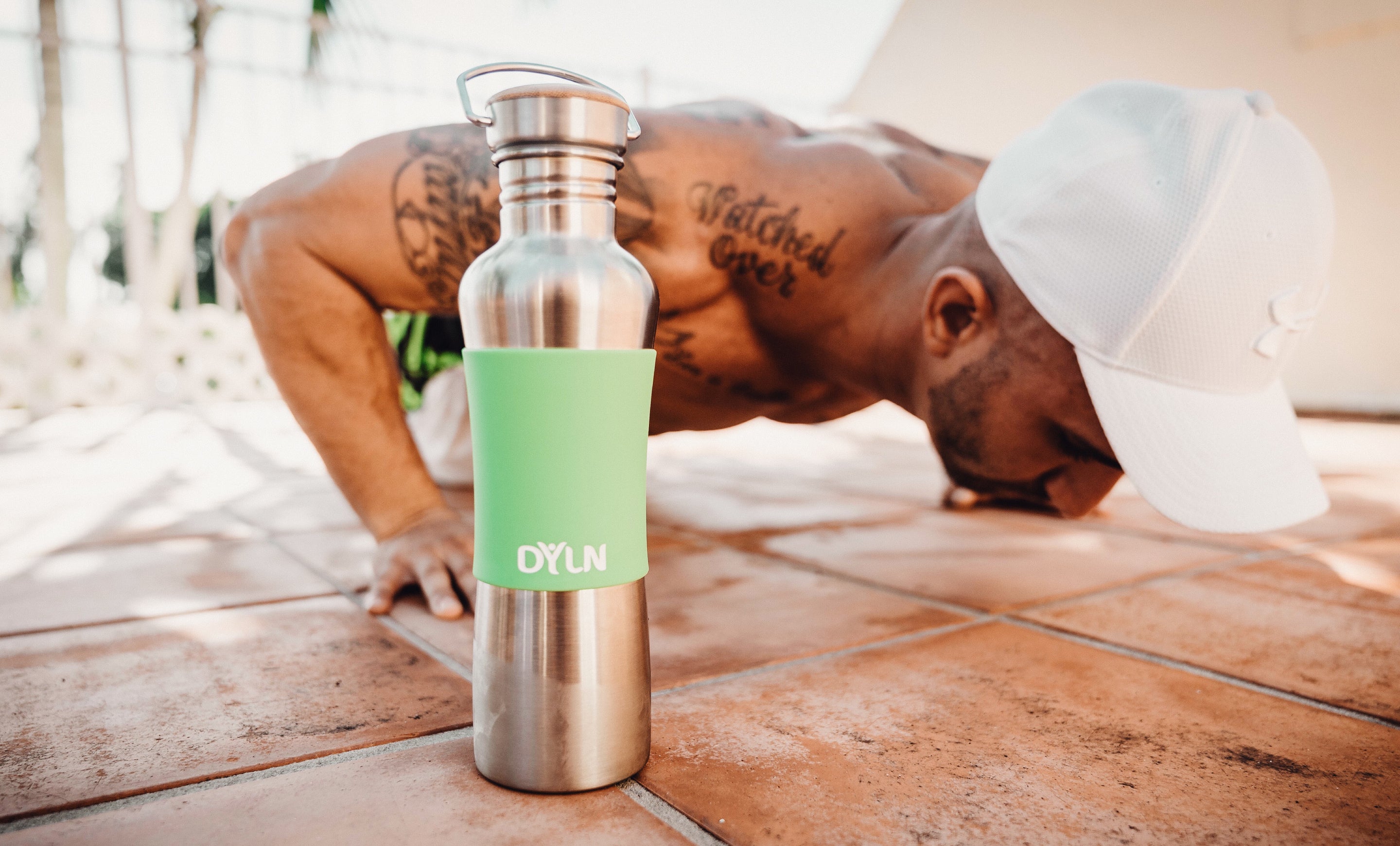¿Tienes problemas para alcanzar tu máximo rendimiento mientras haces ejercicio y no logras encontrar la causa del problema? La causa podría ser algo en lo que normalmente no pensarías, así que echa un vistazo a esta lista: tal vez la solución esté aquí.
1. Falta de sueño
Este es un problema que se puede solucionar fácilmente, pero casi nadie piensa en la importancia del sueño. Un mal entrenamiento puede ser el resultado de una mala noche de sueño. También es una forma de recuperarse de entrenamientos intensos. Muchos expertos incluso recomiendan intentar dormir 10 horas durante un par de semanas para aumentar el rendimiento. Funciona con muchos jugadores de baloncesto, nadadores y tenistas. Además, entrenar temprano por la mañana es genial, pero imposible si te falta sueño.
2. Lista de reproducción poco inspiradora

Escuchar una buena canción puede mejorar tu estado de ánimo sin importar lo que estés haciendo, pero especialmente si estás haciendo ejercicios aeróbicos o corriendo en la cinta. Una buena lista de reproducción motivadora puede hacer que te concentres y aguantes más tiempo. También desvía tu mente de la sensación de agotamiento y dolor muscular, para que puedas entrenar más tiempo sin sentirte demasiado cansado.
3. Hacer ejercicio después de una resaca
Hacer ejercicio después de una noche de fiesta no es una experiencia agradable. Beber la noche anterior puede reducir tu rendimiento hasta en un 11 %. Más concretamente, afecta a tu tiempo de reacción, a tu equilibrio, disminuye tus capacidades y deshidrata tu cuerpo.
4. Nutrición deficiente o incorrecta

Tu ingesta calórica diaria debe coincidir con tus actividades diarias. Es un error habitual comer casi todo lo que queremos solo porque hacemos ejercicio dos o tres veces por semana. Bueno, no funciona así. Por otro lado, algunos atletas intentan adelgazar, por lo que evitan los carbohidratos, las proteínas y las grasas, lo que finalmente hará que se queden sin energía demasiado pronto. La clave es una dieta equilibrada .
Además, si trabajas más de 30 minutos, significa que necesitas comer algo antes del ejercicio y no entrenar con el estómago vacío. Después del entrenamiento, los carbohidratos provenientes de frutas, verduras o cereales integrales son una gran fuente de energía para que los músculos se reconstruyan y se recuperen.
5. Demasiado entrenamiento
Sí, también puede pasar. Si no le das a tu cuerpo el tiempo suficiente para recuperarse de un entrenamiento intenso o frecuente, puedes sufrir una sensación constante de fatiga, depresión y alteración del apetito. En esencia, el problema no es el entrenamiento intenso o prolongado, sino no darle a tu cuerpo el tiempo suficiente para reconstruir los músculos y acumular la energía que necesita.
6. Estrés de la vida
Todo lo que nos sucede en la vida afecta nuestro rendimiento: el fin de una relación, la presión en el trabajo, los problemas económicos y mucho más. Todo lo que estresa tu mente puede estresar tu cuerpo y ser un desencadenante de una disminución del rendimiento. Hacer ejercicio puede ser una excelente manera de controlar el estrés, pero recuerda darte un respiro si no te sientes en tu mejor momento.
7. Importancia del aire que respiramos
En primer lugar, la calidad del aire en el lugar donde haces ejercicio puede influir mucho en tu rendimiento. Si el aire del lugar donde haces ejercicio está contaminado, puede hacer que corras más lento. Los altos niveles de smog influyen en tu velocidad y rendimiento.
Además, la forma en que respiramos oxígeno también es importante. Es importante controlar la respiración. Si estás corriendo, intenta inhalar durante 3 o 4 pasos y exhalar durante los siguientes 3 o 4 pasos. Con el tiempo, te ayudará a inhalar aún más oxígeno, lo que mejora la duración y el rendimiento. Este tipo de respiración se aplica a la mayoría de los ejercicios que queman calorías incluso más que correr. Además, siempre que te sientas sin aliento, disminuye la intensidad de los ejercicios, para que la respiración no se vuelva errática. También es importante tener en cuenta que, a veces, es inevitable realizar una rinoplastia para facilitar la entrada de aire, lo que mejora enormemente el rendimiento.
8. Estiramiento estático como único calentamiento
Los estiramientos estáticos para calentar no son suficientes. No solo te faltará energía, sino que también existe la posibilidad de sufrir una lesión. Los estiramientos estáticos son más efectivos después del entrenamiento, mientras que los estiramientos dinámicos son una mejor opción para el calentamiento. Se trata de repetir un movimiento específico entre 10 y 15 veces, como círculos con los brazos, levantamientos de piernas o rodillas al pecho. Sin embargo, se debe evitar cualquier ejercicio que implique muchos saltos.
Palabras finales
Para que un entrenamiento sea exitoso y beneficioso no solo es necesario hacer los ejercicios correctamente y con frecuencia. Muchas de las cosas que hacemos antes y después del entrenamiento influyen en el rendimiento general y en los resultados a largo plazo. Nuestro cuerpo es complejo, lo que significa que hay muchas cosas a las que prestar atención.






